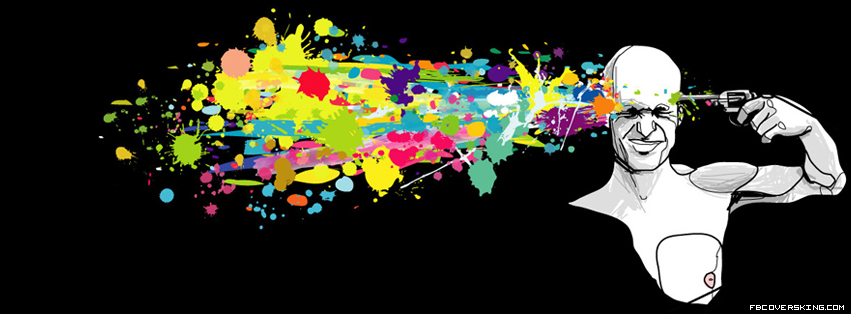I’m not sure about anyone else, but I find myself aloof at times. It’s easy for me to become so bogged down in this world of abstract thinking that I forget that most people don’t care whether such things as metaphysical nihilism or modal realism are descriptive of reality or not. And I think that I, like many people, need a creative release. This article is that for me: a chance to scream and vent about things more emotive than strictly rational, and the Worship Collective is a platform that is currently welcoming that need of mine. They’re an ideologically eclectic group creating and discussing things we encounter on a daily basis: art, beauty, creativity—call it what you will.
As a note of background, my post came about as a sort of response to a writer friend of mine, Michael Candelario (who recently published his first novel—it’s fantastic). His post ‘On Creativity and What It Does for the Soul,’ really got me contemplating the darker side of creativity that is, I think, quite ironically juxtaposed against the sort of heartwarming aspects Michael mentions in his post.
Creative Suicide:
A Postscript to M.L. Candelario’s ‘On Creativity’
Monstrous waves break and flatten, meteors trail on only momentarily through the atmosphere, and all things die, decay, or are wrought out of an historical situation that can no longer be genuinely identified with. This is creative suicide: the tendency of all things beautiful to annihilate themselves. Therefore, I find it ironic when people hope to preserve beautiful things from decay. Of course, this idea that beauty is able to be bottled up—or cryogenically maintained through the ages—is a concept ignited by embers of Platonic thinking: the Beautiful is trans- or ahistorical.
In fact, this is probably my greatest issue with photography. Of all the scenes and people and instants captured by the camera, all of her claims to beauty are contrived. Its moments are torn from their temporal span and stilled. I’m not saying that I’m calloused to appreciating captured instants, but I think you can see my point. An outing with friends and lively conversation (usually instigated further by the pint) inevitably leads to an evening of camera flashes. Sometimes upon reviewing those images I’ll see one that I find to be a particularly striking representation of friend. Maybe it was also angled well and additionally adorned with flattering lighting. But that image lacks a temporal context. The facial expression being made lacks reference to the ones preceding and following it. The instant captured may be nice, the picture even pretty, but the beauty of it—tied inextricably with the historical span—died with the passing of the existential moment.
The creators also struggle throughout all of this. Some devote their lives to a creative task, while others make do with the precious minutes they can sneak out of a day. People with a creative lust, though, have a tendency to wrestle out their work with the inner demons nagging at their soul (maybe much like Jacob wrestled his new name from—an angel of?—God).
In fact, I struggle. It’s –not so?—readily known that my creative angst is inextricably tied up with abstract philosophizing and the foundations/justifications of Christian belief. However, it’s easy for me to drown out my thought-life in an alcoholic blur. I believe creators can relate to this. From my own disciplines I can summon Kierkegaard, Nietzsche, and Wittgenstein. Christian history is replete with moody theologians, found most evidently with the book of Job and the prophets of Hebrew Scripture. Michael, as a writer, certainly knows of Hemingway (who killed himself), Huxley (who was most conspicuous about his drug use), David Foster Wallace (who also killed himself), and Hunter S. Thompson (who also found life better unlived). And musicians… do I really need to say more here?
The lure of the creative (and the beauty bound up with it) is its tendency to self-destruct. That tendency (maybe not so ironically) follows the creator’s as well. The things we most want to value—and the people who want to create them—are torn asunder. I agree with Michael about all the things creativity does for the soul; however, it must be admitted that creativity (and the creative) bear a dark side: it wants to be released and acknowledged, and, paradoxically, freed from your acknowledgment.

